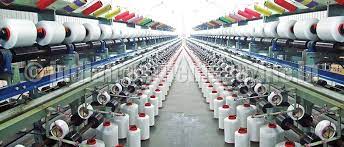The Indian government is considering altering the textile Production-Linked Incentive (PLI) scheme to attract more participation from private companies. This effort aims to modernize manufacturing in the labor-intensive textile sector by making the scheme more flexible and appealing to potential investors.
The Ministry of Textiles has proposed the expansion of product lines covered under the scheme and has sought approval from the Cabinet. Launched two years ago with a budget of Rs 10,683 crore, the scheme initially targeted enhancing domestic manufacturing in man-made fabric (MMF) garments and technical textiles.
MMF, like viscose, polyester, and acrylic, crafted from chemicals, significantly contributes to India’s clothing exports. Technical textiles, used in PPE, airbags, and infrastructure, showcase innovation. The plan is to upgrade HSN codes for MMF, expanding textile categories. This recognizes the textile industry’s changes, aligning codes with evolving fashion and fabric preferences for a broader classification system.
Acknowledging errors in the classification of artificial and natural fibers within the HSN codes, the government aims to rectify these to ensure a more inclusive approach. This adjustment seeks to spark more interest and attract investment proposals from companies in the industry.
Despite the scheme’s launch in December 2021 and the receipt of 64 applications committing around Rs 6,000 crore, there have been setbacks. Some investors are retracting their participation due to challenges in MMF and technical textiles, such as unfavorable export markets and limited expertise.
To address these challenges and broaden the scheme’s influence, the government plans to introduce PLI 2.0 with a refreshed focus on the apparel industry. This revised scheme will particularly target micro, small, and medium enterprises (MSMEs) by lowering investment limits to Rs 50 crore and Rs 25 crore under Part 1 and Part 2, respectively.
PLI 2.0 aims to diversify by including both natural and synthetic fibers, aiming to balance the focus on MMF from the previous iteration while safeguarding the prominence of the traditional cotton-based market.
With nearly Rs 4,000 crore remaining unutilized from the initial phase, PLI 2.0 seeks to utilize these funds. The government anticipates that these proposed changes will revitalize the textile sector by attracting fresh investments and fostering growth in both traditional and innovative textile segments.

